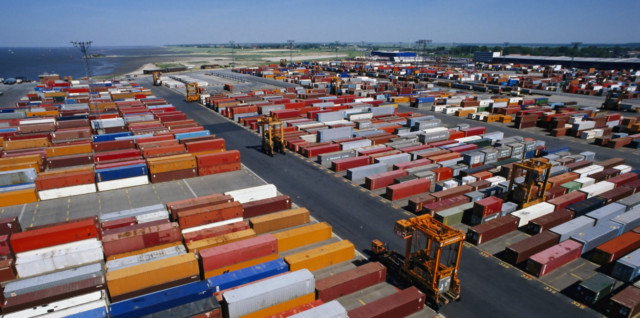
A near-balanced budget and strong but low growth will see Germany maintain its status as Europe’s economic strongman in 2013 — despite high unemployment levels.
The economy powered through the first two years of the Eurozone’s sovereign debt crisis, posting 4.2 per cent growth in 2010 and 3 per cent last year, at a time when some of its peers were seeking bailouts and others were grinding to a complete halt.
Slow but sure progress
But the bloc’s woes have finally caught up with Germany and economic growth is now seen at just 1 per cent next year. “The good news is Germany is standing its ground despite all global economic turmoil and remains on track for growth,” German Economy Minister Philipp Roesler said, after the government announced it would see growth at just 1 per cent next year. “Germany is navigating stormy waters because of the European sovereign debt crisis and an economic weakening in emerging nations in Asia and Latin America,” he added.
Even as Berlin urges other countries to slash deficits as a response to the Eurozone debt crisis, it looks set to balance its federal budget by 2014, says German Finance Minister Wolfgang Schaeuble.
In an opinion article for the German daily Der Tagesspiegel am Sonntag, Schaeuble wrote, “Germany will already this year lower its deficit to below 0.5 per cent of gross domestic product [GDP] and from 2014 have a balanced budget again.” He said the deficit would be nearly balanced by 2013. “Reducing debt is one of the most important political tasks both in Germany and in many other countries. The German people are rightly demanding this with great force.”
Germany has previously committed to balancing its budget by 2016. Last year, the German public deficit stood at 1 per cent of output, well below the 3 per cent ceiling imposed by the European Union.
The country has come under fire for concentrating too hard on reducing its deficit and not enough on promoting growth that could help its Eurozone trading partners.
But with the German economy, Europe’s largest, until now proving largely resistant to the crisis, Schaeuble rejected such claims. “It is important for the European and the world economy that the German economic motor does not sputter or stall. The trend in recent years in Germany has shown that our policy of growth-friendly consolidation is working,” he wrote.
Germany’s export strength saved the currency bloc from falling into recession over the first six months of the year. Uncertainty about policymakers’ ability to curtail the crisis has resulted in companies postponing investment, and turmoil in Germany’s main trading partners could weigh on exports in the second half of the year.
Challenges ahead
Although the German economy will expand 0.9 per cent this year, according to International Monetary Fund’s projections, the central bank of Germany, Deutsche Bundesbank, warns that growth could grind to a standstill by the end of the year because of a slowing demand for exports. “There are increasing signs that a perceptible expansion of economic growth in the third quarter of 2012 will be followed by stagnation or even a slight decrease in GDP in the final quarter of the year,” the bank said in its October monthly report.
Germany managed to post 0.5 per cent growth in the first quarter, followed by 0.3 per cent in the second quarter, largely on the back of strong exports to America and China. Since the peak of the global financial crisis in early 2009, Germany’s economy has only contracted once, in the fourth quarter of 2011 when GDP fell by about 0.1 per cent.
Some German companies are compensating for weaker demand in Europe through sales to faster growing markets. Linde AG, the industrial gases maker that’s set to overtake Air Liquide SA to become the world’s biggest, yesterday reported third-quarter profit that beat analyst estimates after its > purchase of Lincare Holdings boosted sales in the US.
Volkswagen AG, Europe’s largest carmaker, said recently that it is expanding its line-up as it pursues its goal of becoming the world’s largest automaker by 2018. Growth in China and the US helped the company increase deliveries 9.7 per cent to 6.7 million vehicles in the first nine months of 2012.
European Central Bank (ECB) President Mario Draghi’s plan to buy government bonds to contain the debt crisis has also boosted investor confidence. Germany’s benchmark DAX share index has rallied more than 12 per cent from July to October.
“German businesses feel a little less insecure after the ECB stepped in to save the euro,” said David Milleker, Chief Economist at leading asset management company Union Investment GmbH in Frankfurt. “But the crisis hasn’t been solved yet and that’s why unemployment might continue to increase in the months to come.” Unemployment climbed twice as much as economists forecast in October. The number of people out of work rose a seasonally adjusted 20,000 from September to 2.94 million, the Federal Labour Agency in Nuremberg said.







